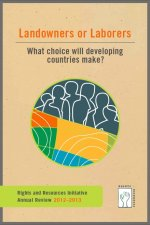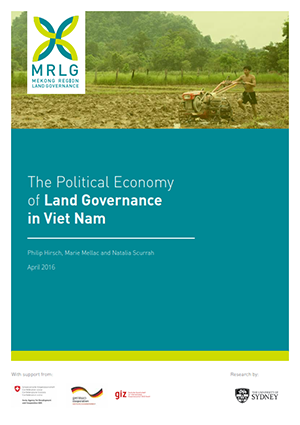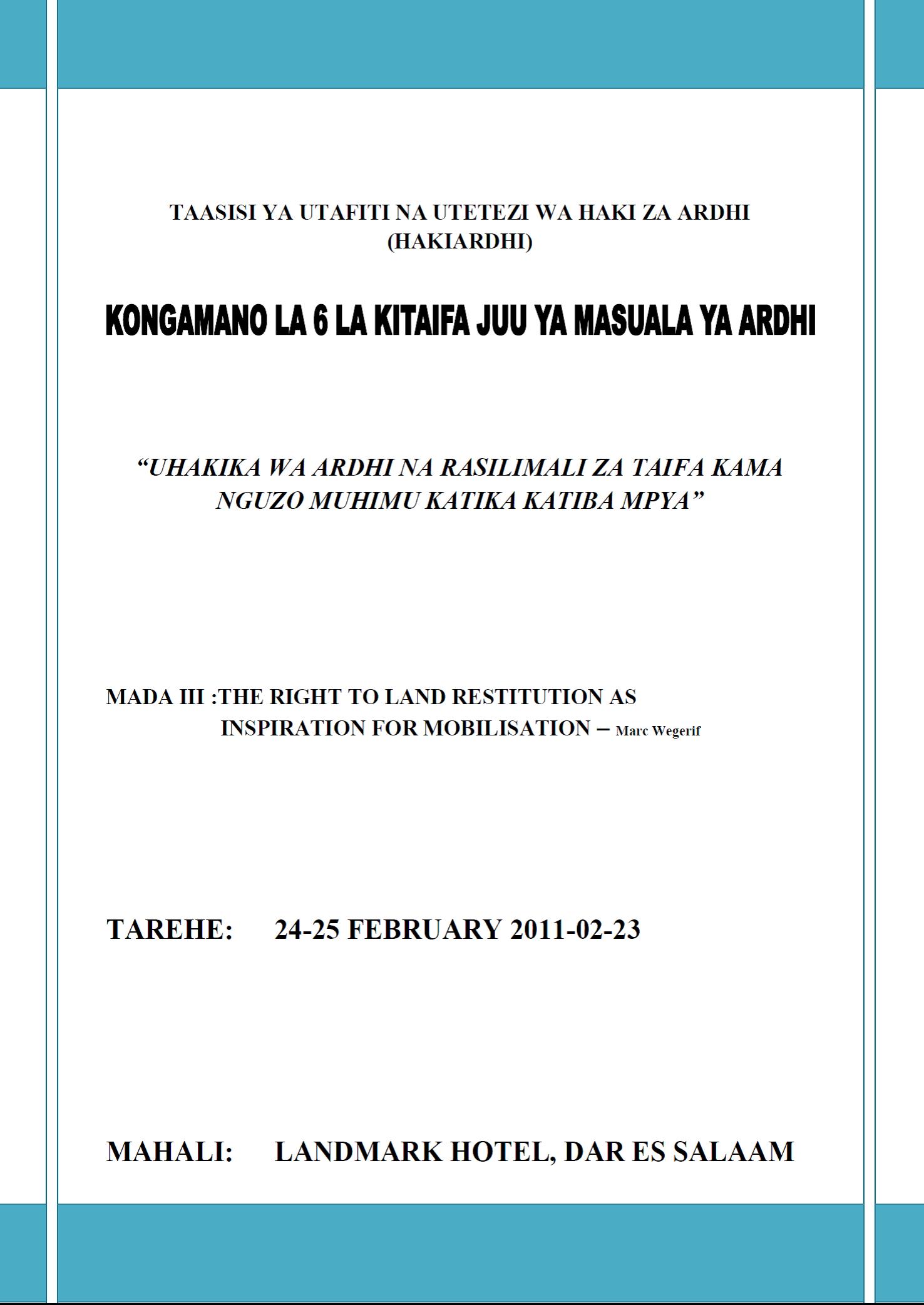Propriétaires fonciers ou paysans sans terre
Au cours de l’année 2012, il est apparu clairement que les pays en voie de développement devaient faire un choix fondamental. Opteraient-ils pour un développement basé sur l’inclusion, le respect de la loi et des droits de leurs citoyens ? Ou chercheraient-ils un moyen rapide d’accéder au développement en cédant la terre et les ressources naturelles des communautés aux investisseurs internationaux et aux élites nationales ? Transformeraient-ils leurs propriétaires fonciers en paysans sans terre ?









